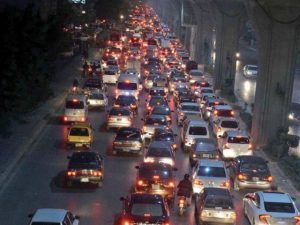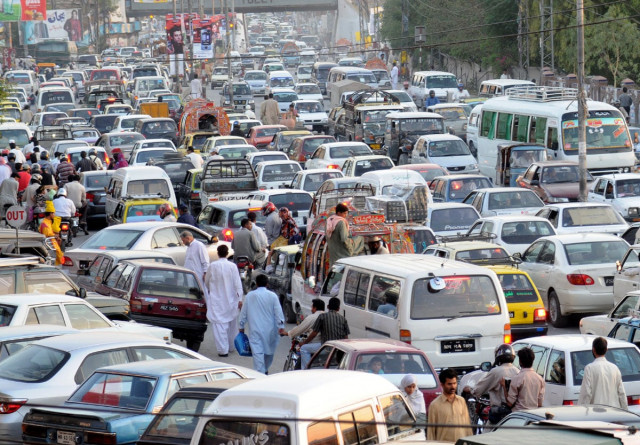The gridlock suffocating Rawalpindi and Islamabad due to the ongoing overhead construction at Katchery Chowk is not a sign of progress—it’s a symptom of mismanagement. What was supposed to keep mobility has instead paralyzed the city. Citizens spend hours each day idling in fumes, wasting fuel, losing productivity, and suffering frustration and anxiety that no amount of asphalt can fix. The project’s inconvenience is not due to lack of funds or technology but lack of discipline, coordination, and most of all—common sense.

Muhammad Arif
Globally, cities build under traffic far more complex than Rawalpindi’s—but they do it intelligently. Every international standard—from the World Road Association to the U.S. Federal Highway Administration —requires a Traffic Management Plan before construction begins. These plans dictate how to maintain traffic flow, minimize closures, ensure safety, and inform the public. In contrast, Pakistan’s projects begin with barricades, confusion, and no plan for how people will move. Katchery Chowk has become an open-air classroom for what happens when development is attempted without proper planning with commuter’s convenience being central theme.
The first principle of common sense—and international best practice—is don’t block what you don’t need. Work zones should be compact, sequential, and active. In Singapore or London, a contractor can’t barricade an inch of road unless work is ongoing. Idle blockages incur fines. In Rawalpindi, whole corridors are sealed for weeks without progress. This is not development; it’s negligence. Authorities must impose a “use it or lose it” policy: if no work is happening, the section reopens. Contractors must face penalties for every lane they keep closed unnecessarily. Progress should be measured not in barricades erected, but in lanes reopened and traffic flow.
Second, shift heavy construction to the night. Cities from Dubai to Tokyo follow the “11 p.m. to 5 a.m.” rule for disruptive work—piling, concreting, and girder placement—when traffic volumes are lowest. With proper lighting, worker safety gear, and noise control, nighttime work cuts congestion, emissions, and tempers. Rawalpindi’s decision to allow daytime construction during peak hours defies logic. Even if working at night adds a few weeks to the schedule, it saves months of public agony and millions in wasted fuel. 
The economic cost of this chaos is staggering. A car idling for ten minutes burns about 0.13 liters of fuel. Multiply that by tens of thousands of vehicles, and you get tens of thousands of liters wasted daily. Add the cost of late arrivals to workplaces, delayed school runs, and missed appointments—the total runs into billions annually. This is the price of ignoring planning. A city’s economy cannot thrive when its people spend half their day just trying to get to work.
The third lesson of international practice is construction sequencing. Projects should follow a linear pattern—complete one phase, restore traffic, move to the next. Instead, Rawalpindi’s contractors dig multiple sections at once, paralyzing entire corridors. The European Standard EN ISO 39001 emphasizes maintaining throughput capacity during urban construction. Pakistan must adopt this principle. Orderly, sequential work may take slightly longer, but it protects citizens’ sanity.
Equally vital is real-time communication. In modern cities, electronic boards, radio alerts, and social media updates keep citizens informed of closures and alternate routes. In Rawalpindi, the public learns about diversions only when trapped in them. The Rawalpindi Development Authority (RDA) and City Traffic Police (CTP) must publish daily updates—where work is active, which lanes are open, and how long closures will last. Information is the cheapest and most effective traffic management tool available.
Next, apply common sense to institutional timings. The morning peak between 7:30 and 9:30 a.m. sees everyone—students, lawyers, office workers, and traders—on the roads together. The same chaos repeats in the evening. Staggering timings can flatten these peaks instantly. Schools should retain early hours, courts should function from 11 a.m. to 4 p.m., government offices from 10 a.m. to 6 p.m., and private businesses from 12 a.m. onward, except bakeries and grocery stores. Many Asian megacities use this simple formula to distribute movement over time. No new budget or technology is required—only coordination and common sense.
A modern traffic strategy also demands more trained wardens. The current manpower is too thin to enforce order. Internationally, the ratio is one warden per 50 meters of active construction frontage. Rawalpindi barely manages 1-2 per junction. Increasing personnel, supported by digital communication tools, would ensure smoother flow and faster clearance of stalled vehicles.
And perhaps the most glaring example of irrationality – VIP traffic blockages. No city that respects its people stops an entire population to let a few pass. Better use helicopters for VIP movements if essential. Rolling security corridors are the global standard—convoys move under managed, not frozen, traffic. Every minute of stoppage adds up to hours of delay for thousands, costing fuel, productivity, and public goodwill. Dignity of office should never come at the expense of citizens’ dignity of movement.
Lastly, cease national and international flight operations from the old Rawalpindi airport. Every VIP flight triggers lockdowns along Airport Road and Saddar, choking the entire city. The Islamabad International Airport was built to handle such operations. Continuing flights from Chaklala is an insult to both planning and public patience.
All these issues share one root: the refusal to follow global best practices or even local logic. Development is not about pouring concrete faster—it’s about ensuring people can live, move, and work while it happens. Adopting international standards isn’t about copying others; it’s about respecting citizens’ time, fuel, and sanity.
If Rawalpindi’s Katchery Chowk project becomes a turning point—where authorities finally learn to build with discipline, enforce accountability on contractors, and communicate transparently—it could redefine urban governance in Pakistan. But if it continues as it is, it will remain a monument not to progress, but to avoidable suffering.
In the end, the choice is simple: adopt international practices—or at least, use common sense and do what is possible such as change working hours, use helicopters for VIP movement, use night shift for major construction work, and enforce more trained wardens to keep the order. (The author is a thought leader, focusing on economy, energy, consumer rights, governance.) Email: [email protected] | Cell: 0333-5191381
Opinions expressed in this article are the author’s own and do not necessarily reflect WNAM’s editorial policy.


